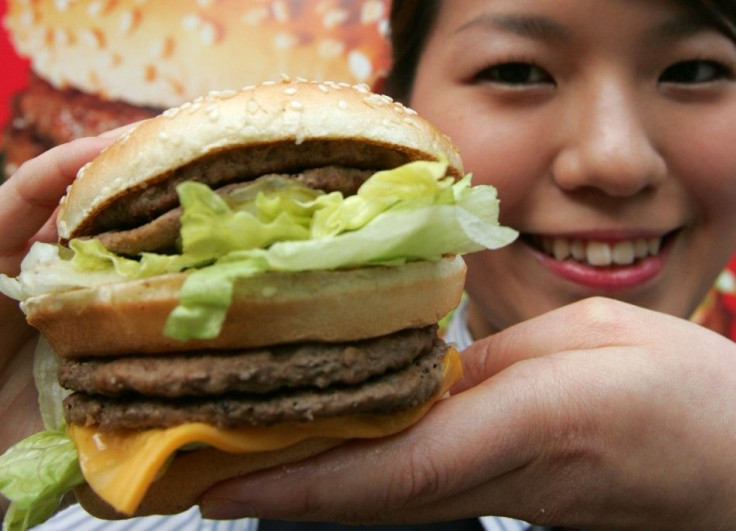New York Fast-Food Workers Strike For Higher Wages

Many New York City fast-food restaurant workers walked off the job early this morning in an effort to build unionization efforts and negotiate pay and benefit increases, Salon reported.
The one-day strike includes workers from McDonald's, Burger King, Domino's, Wendy's, KFC, Taco Bell and Papa John's, with the largest contingent of employees coming from McDonald's.
Workers are asking for a wage bump to $15 per hour so they can “support their families, and put money back into the economy, instead of relying on taxpayers to shoulder the burden for the fast food industry’s low-wages,” according to a statement for the workers’ campaign, called Fast Food Forward.
Raymond Lopez, a shift manager at a New York McDonald's, told Salon he makes only $8.75 per hour while also juggling catering and gardening work to pay off student loans and support his family. McDonald's supervisors and management, he says, can be stringent and abusive, forcing employees to work off of the clock and expecting impossible standards from them. He sees no reason why the company, which, according to the National Employment Law Project, experienced a 130 percent profit increase over the last four years, can't pay its employees more.
“This company has enough money to pay us a reasonable amount for all that we do … they’re just not going to give it to us as long as they can get away with it,” Lopez said. “I think we need to be heard.”
According to Businessweek, the median wage for New York fast-food workers is about $9 per hour, or about $18, 500 a year for full-time work.
Compounding the problem, Salon reported, is how full-time fast-food work can be a trap for employees. Corporations purposely limit workers to part-time positions, denying them the legal protections and health benefits afforded to full-time employees. Further, the unpredictability of their part-time schedules makes it difficult for them to hold down other jobs.
Community organizers in New York have been working for months to garner support and members for a fast-food union. Their model is a geographic one, uniting workers not by corporation but by industry and location. They have been secretly distributing petitions at fast-food locations and holding meetings.
One McDonald's worker, 79-year-old Jose Cerillo, was suspended by the company after he helped co-workers sign up for the union petition. McDonald's claimed Cerillo violated a “no solicitation” policy. Cerillo told Salon that he was delighted after receiving a call a few months ago from a community organizer about the petition. He's worked for McDonald's since 1996 and only makes $7.40 an hour, which he says he struggles to live on.
Even after his suspension, Cerillo is eager to help the growing union.
“I feel happy, and I want to fight more … I want to do something worthwhile,” he told Salon in Spanish.
Cheryll Forsatz, a spokesperson for McDonald's, told Businessweek that the company has an open dialog with employees and encourages them to express any concerns.
Despite workers' enthusiasm for unionization efforts, organizers face an uphill battle. The structure of the fast-food industry is one where franchises often buckle under pressure from their corporation's headquarters. If the franchisee has striking employees, he or she could lose his contract with the national restaurant chain to which he belongs. Furthermore, small pockets of part-time employees haven't made for the strongest union alliances in the past.
© Copyright IBTimes 2024. All rights reserved.











